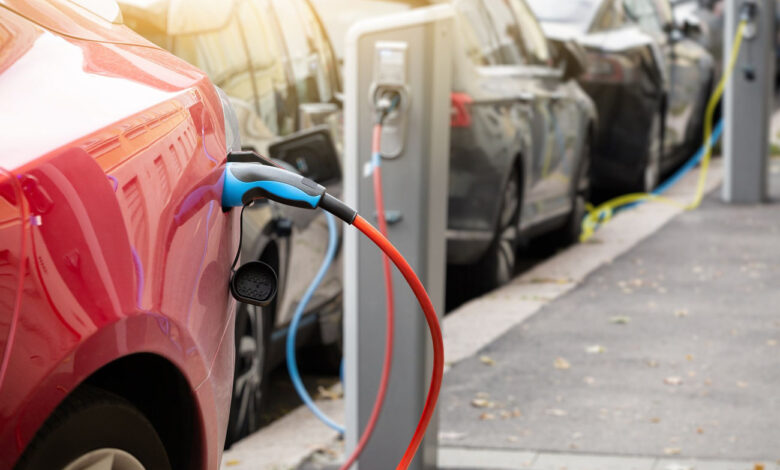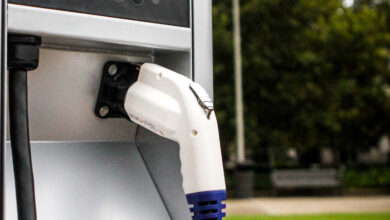Electric car sales to reach a new global record in 2024

According to the most recent report on the global electric vehicle (EV) market published by the International Energy Association (IEA), worldwide electric and hybrid car sales will reach 17 million units by the end of 2024, reflecting strong growth despite setbacks in some regions.
Despite the slowdown in sales in the US and Europe, the worldwide demand for electric passenger cars will remain strong over the next decade, according to the IEA’s Global EV Outlook. This will result in a significant reduction in oil consumption for road transport.
With strong supply chains and a robust domestic industry providing affordable cars, China will lead the global electrification process, having an EV out of three cars on the road by 2030. In the US and the European Union (EU), one in five cars will be electric by the same year, based on today’s policy settings.
Following a setback in sales in the US and Europe in the first quarter of 2024, demand is predicted to stay strong for the rest of the year. The regional expansion of electrification helps the market grow, but the impact of high inflation, stretched supply chains, and diminishing subsidies shows their effect on the global market. Electric car sales grew around 25% in the first quarter, compared to the same period of 2023, yet the number of cars sold worldwide in the same period is roughly equivalent to the cars sold in all of 2020, notes IEA.
China, the largest EV market worldwide, will see around 10 million new EVs hitting the roads in 2024, representing 45% of all car sales in the country. In the US, around one in nine cars sold is expected to be electric, while in Europe, one in four cars is predicted to be electric, despite suffering from fading subsidies.
These three markets pioneered a surge in EV sales in 2023, as sales increased by 35%, reaching almost 14 million (representing 18% of all cars sold). Sales in emerging markets were also significant, especially in Vietnam and Thailand, where EVs represented 15% and 10% of all car sales in 2023, respectively. This year, worldwide electric and plug-in hybrid car sales are expected to reach 17 million, a 20% increase compared to 2023.
Significant changes to come
The growth expectation in the next decade is to be fueled by high investments in the supply chain, continuous policy support and declining prices in electric cars and batteries, says IEA. This expectation is now questioned by cuts in investments, much-increased demand for raw materials and still high prices of EVs and batteries, especially in the US and the EU. Ford, for instance, postponed a $12 billion investment in EVs, stating that electric cars are still too expensive for most consumers. The European Court of Auditors (ECA) also warned about the high prices of EVs in Europe, stating that the environmental goals will be in jeopardy if prices remain at current levels.
If countries fully met their climate and energy targets on time, IEA says two out of three cars sold would be electric by 2035. In this most optimistic scenario, the adaptation of EVs from two and three-wheelers to vans, trucks, and buses would avoid the consumption of 12 million barrels per day, IEA notes.
The strong financial commitment of automakers, aligned with the ambitious environmental goals of governments, increased the global capacity to produce EV batteries. Nevertheless, the IEA report underlines that the transition to electricity will rely on affordability and may not be consistent. Despite increased market competition and improved battery technology, internal combustion engine (ICE) cars are cheaper than EVs on average in the US and Europe. At the same time, lower operational costs are expected to pay back the initial investment, says IEA. According to the report, Chinese automakers delivering over half of all-electric cars in 2023 could reduce the pressure on purchase prices. Nevertheless, the strong tariffs imposed on Chinese EVs by the US and the anti-subsidy inquiry launched by the EU against China clearly state that affordable Chinese EVs are not so welcome in the global rivalry.
Global public charging points increased by 40% in 2023 compared to 2022. To keep up with the goals set by governments, charging networks need to increase sixfold by 2035, IEA says.
The battery recycling industry is growing fast, with recycling capacity reaching 300 gigawatt-hours (GWh) in 2023. Considering that all announced battery recycling projects are fulfilled, this figure may exceed 1,500 GWh by 2030, 70% of which is based in China.
“Rather than tapering off, the global EV revolution appears to be gearing up for a new phase of growth”, says IEA Executive Director Fatih Birol. Investments in battery manufacturing signal a stronger EV supply chain, which is expected to meet the expansion plans of automakers.
The main photo is courtesy of Shutterstock, 1807355083.



